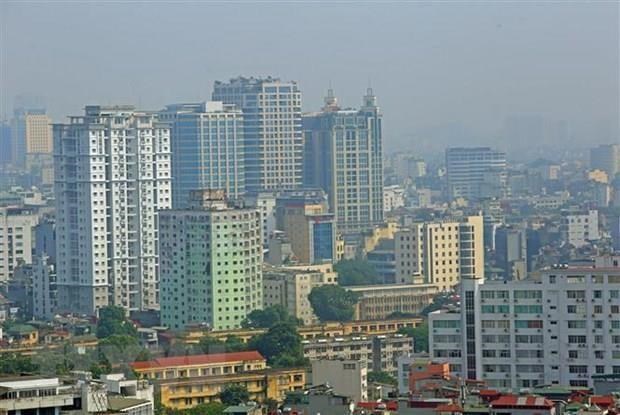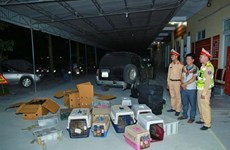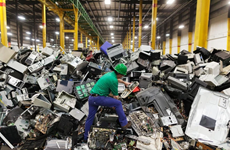Law needed to improve air quality: workshop
Experts have suggested passing a new law to help improve air quality in Hanoi.
 A view of Hanoi city (Photo: VNA)
A view of Hanoi city (Photo: VNA)Hanoi (VNA) – Experts have suggested passing a new law to help improve air quality in Hanoi.
A workshop in the capital on August 27 discussed air environment protection due to the worsening pollution in the city.
Assoc. Prof. Dr Bui Thi An, Vice Chairwoman of the Hanoi Union of Science and Technology Associations, said due to rapid urbanisation, unplanned population expansion and infrastructure development unable to meet demand, air pollution in Hanoi, especially in inner areas, has reached alarming levels, affecting not only people’s health but also activities in the city.
Comparing air quality in Hanoi and Seoul (the Republic of Korea), Assoc. Prof. Dr Nguyen Duc Luong from the University of Civil Engineering said the average level of PM10 (particles less than 10 micrometers in diameter), CO and O3 recorded by the monitoring station on Nguyen Van Cu street of Hanoi between 2010 and 2016 was much higher than in Seoul in the same period.
In Hanoi, the concentrations of air pollutants, except for O3, tend to increase in the dry season (autumn and winter), which is relatively different from in Seoul, he said, noting it may be because of the differences in emission sources and meteorological conditions between the two cities.
Meanwhile, hour-based changes in pollutant concentrations are quite similar between these cities, showing the impact of exhaust fumes from transport vehicles during rush hours on air quality.
Luong said to have a comprehensive assessment of Hanoi’s air quality, it is necessary to analyse statistics collected in different locations, impacts of different emission sources (transport, industry, daily activities, construction and burning straw as agricultural waste), and meteorological conditions.
More automated air monitoring stations need to be installed while other tools like satellite remote sensing should be applied to support air quality management, he added.
At the workshop, participants underlined the need to issue a particular policy on air environment protection such as a law; control major emission sources like cement, thermal power and steel production; boost the use of public transport; and promote the development of low-carbon economic sectors.-VNA













